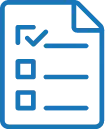Korean Classes with Native Korean Tutors
You can be trained by our native-speaking fully-qualified, locally-based Korean tutors at a time and location to suit you. These highly personalised Korean lessons can take place any day -even weekends- and can be organised in the morning, afternoon or evening. If taking lessons at your home or office is not convenient, there is always the option to take classes at the office of your teacher.

Reviews Of Our Korean Courses

The lessons are going really well. Min-Jong is very nice, patient and a good teacher. I am really enjoying the course.

I'm loving my Korean course. Yerhyun is lovely and makes sure to ask if I have any questions at the end of each session. The pace of the lessons is really good.



















